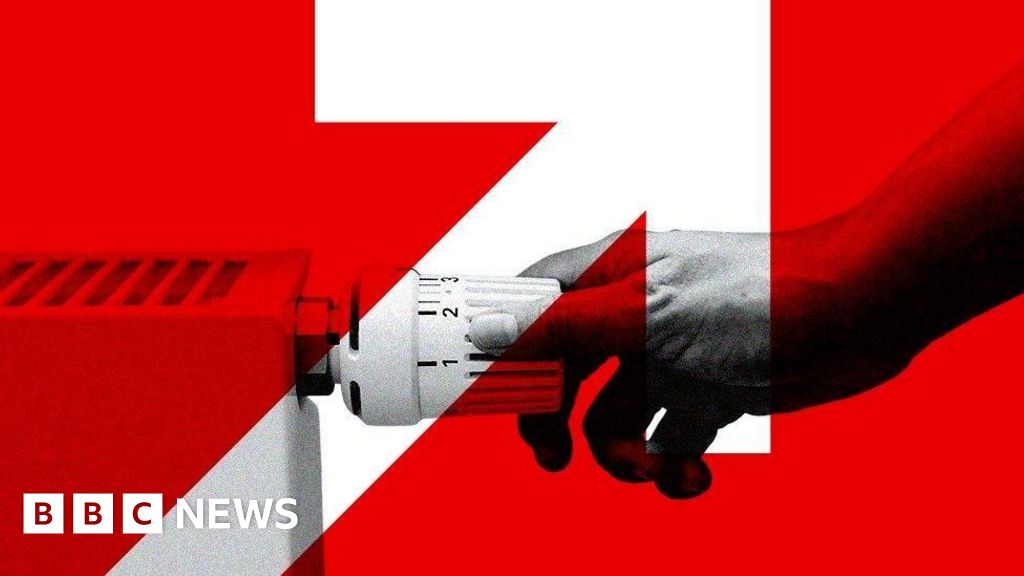ARTICLE AD BOX
 Image source, Getty Images
Image source, Getty Images
By Sarah Rogers
Business reporter, BBC News
When single mum-of-two Sarah began struggling to make ends meet she borrowed money from a family friend.
She said she trusted him "completely" but he turned out to be a loan shark. Sarah, not her real name, borrowed £3,000 and paid back £5,000.
The man was lending to around 100 people and has since been jailed.
The body that prosecutes illegal lenders said for the first time in its history it was helping people who used loan sharks to pay for food and energy.
The England Illegal Money Lending Team (IMLT) said traditionally people used loan sharks when they urgently needed to pay big bills like a new washing machine or car repairs.
But during the cost of living crisis, a worrying trend had developed in which people turn to illegal lenders to borrow smaller amounts for basic essentials, it said.
A credit union has also warned against borrowing from unofficial lenders as the expense of Christmas puts extra pressure on households.
Jackie Colebourne at Clevr Money said: "Do not borrow money from anyone who is not registered, even if you think they might be your friend. Just don't."
Image source, IMLT
Image caption,Cath Wohlers from the England Illegal Money Lending Team said it took people an average of three years to report a loan shark
IMLT operations manager Cath Wohlers told BBC Radio 4's Money Box programme: "For the first time in 20 years we're actually seeing people who are borrowing for food and fuel from illegal money lenders.
"It's a sign of the times - there are a lot of people with negative budgets at the moment where what's coming in is not covering what's going out.
"And that's prime loan shark territory. Loan sharks will prey on any vulnerability they can find."
She said those with poor credit ratings are often limited to payday loans or other high-cost options, and may have been denied credit from traditional sources such as banks.
'It was never paid off'
Sarah, whose name we have changed to protect her identity, fell into debt after borrowing money to pay for Christmas presents for her two children.
"At the time I thought he was a friend doing me a favour. He had known me all my life and knew my parents - I trusted him completely," she said.
"It just kept rolling on year after year and it was never paid off. If I borrowed £300, I knew I was paying back about £500, but I didn't realise how much it was mounting up.
"I trusted him as a friend. He would come to collect the money and we would have a laugh and a joke."
After further investigation by the IMLT it was revealed that Sarah had borrowed in the region of £3,000 and paid back around £5,000 over a period of 10 years.
What is a loan shark?
- Illegal money lenders or loan sharks aren't always obvious and can pose as a friend
- They operate outside the law with high interest rate, no paperwork, and sometimes threats if the money is not paid
- Loan sharks aren't registered or regulated by organisations like the Financial Conduct Authority
- The IMLT says in the first half of the year 56% of those they have helped borrowed from someone they thought was a friend
- It's estimated 1.08 million people are in debt to a loan shark, according to Fair4All finance, but it's difficult to gauge because people can be too embarrassed to speak out
- The sums borrowed ranged from £30 to £30,000
Ms Wohlers from the IMLT said it took people an average of three years to report a loan shark. She called for there to be more awareness of the dangers of loan sharks but also the help that is available.
"The biggest reason people say they didn't come to us sooner is that they didn't know we existed," she said. "We will do anything and everything to try and raise awareness. Come to us, we will help you."
Ms Colebourne, operations manager at Clevr Money credit union in Blackpool, said it had seen a big increase in people asking for loans.
Their reasons included covering the cost of Christmas and spreading the cost of bills. "People who save with us are using up those savings now," she said.
"We can't help everybody, but we signpost people for help to get them back on track if they're in financial difficulty."
Anyone who thinks they have been targeted by an illegal money lender or has information about illegal lending is urged to contact the IMLT.
You can listen to the full story on Money Box.
What to do if I can't pay my debts
- Take control. Citizens Advice suggest you work out how much you owe, who to, which debts are the most urgent and how much you need to pay each month.
- Ask for a payment plan. Energy suppliers, for example, must give you a chance to clear your debt before taking any action to recover the money

 1 year ago
35
1 year ago
35








 English (US) ·
English (US) ·